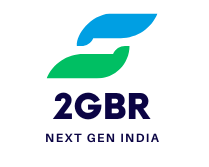Increase Business Online by Using Digital Marketing: Proven Strategies for Success
In today’s competitive landscape, increasing business online is not just an option; it’s a necessity. The power of digital marketing cannot be overstated when it comes to driving growth and reaching a broader audience. Whether you are a small business owner or managing a large enterprise, understanding and utilizing digital marketing strategies can significantly boost your online presence, enhance customer engagement, and, ultimately, increase your business’s bottom line.
Understanding the Digital Landscape
How to increase your business online, The digital landscape has evolved dramatically over the past decade, shifting how businesses operate and how consumers interact with brands. Today, the online marketplace is more crowded than ever, with countless businesses vying for the attention of the same pool of potential customers. In this environment, merely having an online presence is not enough. To stand out, businesses must adopt comprehensive digital marketing strategies that leverage the latest tools and technologies.
The current online marketplace is characterized by rapid changes and the constant emergence of new trends. From social media platforms introducing new features to search engines updating their algorithms, staying ahead requires continuous learning and adaptation. Businesses that succeed online are those that not only understand the current digital landscape but also anticipate changes and adapt their strategies accordingly
Digital Marketing Fundamentals
How to increase your business online, At its core, digital marketing encompasses all marketing efforts that use an electronic device or the internet. Businesses leverage digital channels such as search engines, social media, email, and websites to connect with current and prospective customers. The key elements of digital marketing include search engine optimization (SEO), content marketing, social media marketing, email marketing, and pay-per-click (PPC) advertising.
A well-rounded digital marketing strategy is essential for success. This strategy should align with the overall business goals and include measurable objectives. Without a clear strategy, digital marketing efforts can be fragmented and ineffective, leading to wasted resources and missed opportunities. Businesses should start by identifying their target audience, understanding their needs and preferences, and then crafting a strategy that uses the most effective digital channels to reach them.
Creating a Strong Online Presence
How to increase your business online 2gbr Software, One of the most critical aspects of digital marketing is establishing a strong online presence. This begins with a professional, user-friendly website that serves as the cornerstone of your online identity. A well-designed website not only attracts visitors but also encourages them to stay longer and explore what your business has to offer. It’s essential that your website is optimized for search engines (SEO) to ensure it ranks highly in search engine results pages (SERPs).
Search engine optimization is a multifaceted discipline that involves both on-page and off-page strategies. On-page SEO focuses on optimizing individual web pages to rank higher and earn more relevant traffic in search engines. This includes optimizing content, HTML source code, and meta tags. Off-page SEO, on the other hand, involves activities that drive traffic to your site from outside sources, such as link-building and social media engagement.
Social media platforms play a pivotal role in building and maintaining your online presence. With billions of active users across platforms like Facebook, Instagram, Twitter, and LinkedIn, social media offers an unparalleled opportunity to connect with your audience. The key to social media success is not just about posting regularly but about engaging with your audience through meaningful interactions, responding to comments, and sharing content that resonates with them.
Content Marketing for Business Growth
How to increase your business online, Content marketing is the backbone of a successful digital marketing strategy. By creating valuable, relevant, and consistent content, businesses can attract and retain a clearly defined audience — and, ultimately, drive profitable customer action. The type of content you create will depend on your business goals and target audience. This can include blog posts, articles, videos, infographics, podcasts, and more.
Content distribution is just as important as content creation. It’s not enough to produce high-quality content; you need to ensure it reaches your audience. This can be achieved through various channels such as your website, social media platforms, email newsletters, and guest blogging on other reputable sites. Additionally, using search engine optimization (SEO) techniques will help ensure your content ranks well in search engine results, making it easier for your audience to find you.
Blogs and articles are particularly effective for driving organic traffic to your website. By addressing the questions and challenges your target audience faces, you position your business as an authority in your industry. This not only builds trust but also encourages visitors to return to your site, where they may eventually convert into customers.
Search Engine Optimization (SEO)
How to increase your business online, Search engine optimization (SEO) is crucial for any business looking to increase its online visibility. SEO involves optimizing your website and content so that it ranks higher on search engine results pages (SERPs), which in turn drives more organic (non-paid) traffic to your site.
SEO can be divided into two main categories: on-page SEO and off-page SEO. On-page SEO refers to the optimization of content and HTML source code on your website, such as using the right keywords, ensuring fast loading times, and creating a mobile-friendly design. Off-page SEO involves activities outside of your website that affect your rankings, such as building backlinks from other reputable websites and engaging with your audience on social media.
Effective keyword research is the foundation of any successful SEO strategy. By understanding what your target audience is searching for, you can create content that meets their needs and ranks well on search engines. Tools like Google Keyword Planner, SEMrush, and Ahrefs can help you identify the most relevant keywords for your business.
Social Media Marketing
How to increase your business online, Social media marketing is a powerful tool for growing your online business. However, with so many platforms available, it’s essential to choose the ones that align best with your target audience. For instance, Instagram and Pinterest may be ideal for visually-driven industries like fashion and design, while LinkedIn is better suited for B2B companies.
Building an engaged audience on social media requires more than just posting regularly. It involves creating content that resonates with your followers, encouraging conversations, and responding to feedback. Social media advertising can further amplify your reach, allowing you to target specific demographics with tailored ads.
Social media advertising platforms, like Facebook Ads, allow businesses to create highly targeted campaigns that can be customized to meet specific business goals. These ads can be used to drive traffic to your website, increase brand awareness, generate leads, or promote specific products or services.
Email Marketing Strategies
How to increase your business online, Email marketing remains one of the most effective digital marketing strategies for businesses of all sizes. Building an email list is the first step in launching successful email campaigns. This list should consist of subscribers who have willingly opted in to receive communications from your business.
Crafting effective email campaigns involves more than just sending out promotional messages. It’s about delivering value to your subscribers through informative content, special offers, and personalized recommendations. Segmentation is key to achieving this, as it allows you to tailor your messages based on the interests and behaviors of different subscriber groups.
Analyzing the performance of your email campaigns is crucial for ongoing improvement. Key metrics to track include open rates, click-through rates, and conversion rates. By understanding what works and what doesn’t, you can refine your approach and achieve better results over time.
Pay-Per-Click Advertising (PPC)
How to increase your business online, Pay-per-click (PPC) advertising is an effective way to drive immediate traffic to your website. Unlike organic traffic, which can take time to build, PPC campaigns can produce quick results by placing your ads at the top of search engine results or on social media platforms.
Understanding the basics of PPC is essential before launching a campaign. This includes knowing how bidding works, setting a budget, and identifying the right keywords to target. Google Ads and social media advertising platforms like Facebook and Instagram offer robust tools for creating and managing PPC campaigns.
Optimizing PPC campaigns involves continuously monitoring and adjusting your ads to ensure they deliver the best possible return on investment (ROI). This includes testing different ad copy, targeting options, and bidding strategies to find what works best for your business.
Affiliate Marketing
How to increase your business online, Affiliate marketing is a performance-based marketing strategy where businesses reward affiliates (partners) for driving traffic or sales through their marketing efforts. This can be a cost-effective way to expand your reach and increase sales without upfront costs.
Setting up an affiliate program requires careful planning. You need to define the commission structure, choose the right affiliates, and provide them with the tools and resources they need to promote your products or services effectively. Tracking performance is also essential to ensure that your affiliates are delivering value to your business.
Finding the right affiliates is key to the success of your program. Look for partners who have a strong online presence and a target audience that aligns with your business. These could be bloggers, influencers, or even other businesses with complementary products or services.
Influencer Marketing
Influencer marketing involves partnering with individuals who have a significant following on social media to promote your products or services. This strategy can be highly effective, as influencers have built trust with their audience, making their endorsements more impactful.
Leveraging influencers for business growth requires finding the right individuals to partner with. Look for influencers whose values align with your brand and who have an engaged audience that matches your target market. Micro-influencers, with smaller but highly engaged followings, can often deliver better results than macro-influencers with larger but less engaged audiences.
Measuring the success of influencer campaigns is crucial for understanding their impact on your business. This can be done by tracking key metrics such as engagement rates, website traffic, and sales generated through influencer partnerships.
Analytics and Data-Driven Marketing
Data-driven marketing is the practice of using data to inform and optimize your marketing strategies. By analyzing data from various sources, businesses can gain insights into customer behavior, preferences, and trends, allowing them to make more informed decisions.
The importance of data in digital marketing cannot be overstated. It enables businesses to track the effectiveness of their campaigns, understand their audience better, and identify areas for improvement. Key metrics to track include website traffic, conversion rates, bounce rates, and customer lifetime value.
There are several tools available for digital marketing analytics, including Google Analytics, SEMrush, and HubSpot. These tools provide valuable insights into how your campaigns are performing and where you can make adjustments to improve results.
Conversion Rate Optimization (CRO)
Conversion rate optimization (CRO) is the process of improving the percentage of website visitors who take a desired action, such as making a purchase or filling out a form. CRO is essential for maximizing the return on your digital marketing efforts.
Understanding CRO involves analyzing the behavior of your website visitors and identifying barriers to conversion. This can be done through techniques like heat mapping, user testing, and analyzing conversion funnels. Once you understand where visitors are dropping off, you can implement strategies to address these issues and improve conversion rates.
A/B testing is a powerful tool for CRO. By testing different versions of a webpage or element, such as a call-to-action button, you can determine which version performs better and make data-driven decisions to optimize your site.
Mobile Marketing
With the rise of mobile usage, mobile marketing has become an essential component of digital marketing. Creating mobile-friendly content is crucial, as more people access the internet via smartphones and tablets. This includes ensuring that your website is responsive, meaning it adjusts to different screen sizes, and that your content is easily readable on mobile devices.
Mobile advertising strategies include mobile search ads, display ads, and social media ads designed specifically for mobile users. These ads can be highly targeted based on user behavior, location, and demographics, making them an effective way to reach your audience.
The growing importance of mobile marketing means that businesses need to prioritize mobile optimization in all their digital marketing efforts. This not only improves the user experience but also helps improve your rankings in mobile search results.
Video Marketing
Video marketing is a powerful way to engage your audience and convey your brand message. Video content is highly shareable and can drive significant traffic to your website or social media channels. The popularity of platforms like YouTube, TikTok, and Instagram Stories highlights the growing importance of video in digital marketing.
Creating engaging video content involves more than just producing high-quality videos. It’s about telling a compelling story that resonates with your audience and encourages them to take action. Whether it’s a product demonstration, customer testimonial, or educational content, your videos should align with your overall marketing goals.
Platforms for video marketing include YouTube, Vimeo, and social media platforms that support video content. Each platform has its own set of best practices, so it’s essential to tailor your video strategy to the platform you’re using.
Online Reputation Management
Your online reputation can have a significant impact on your business. A positive reputation builds trust and encourages potential customers to choose your business over competitors. Conversely, a negative reputation can deter customers and damage your brand.
Managing online reviews and feedback is a key aspect of online reputation management. Encourage satisfied customers to leave positive reviews on platforms like Google My Business, Yelp, and Trustpilot. At the same time, respond promptly and professionally to negative reviews to address concerns and demonstrate your commitment to customer satisfaction.
Building trust with your audience goes beyond managing reviews. It involves consistently delivering on your brand promise, providing excellent customer service, and being transparent in your communications. By focusing on these areas, you can cultivate a strong, positive reputation that supports your business growth.
Customer Relationship Management (CRM)
Customer relationship management (CRM) tools are invaluable for managing and improving your interactions with customers. CRM systems allow businesses to track customer interactions, manage leads, and automate communications, helping to improve customer satisfaction and retention.
Using CRM tools to enhance customer relationships involves leveraging data to personalize interactions. For example, you can use CRM data to send personalized email campaigns, tailor product recommendations, and provide targeted support. This level of personalization helps build stronger relationships with your customers and increases the likelihood of repeat business.
Automating customer support through CRM tools can also improve efficiency and ensure that customers receive timely responses to their inquiries. This can be achieved through features like automated email responses, live chat, and self-service options.
E-Commerce Optimization
For businesses that operate online stores, optimizing your e-commerce platform is crucial for maximizing sales. This includes ensuring that your product listings are clear, informative, and visually appealing. High-quality images, detailed product descriptions, and customer reviews all contribute to a positive shopping experience.
Simplifying the checkout process is another important aspect of e-commerce optimization. A complicated or lengthy checkout process can lead to cart abandonment, so it’s essential to make it as easy as possible for customers to complete their purchases. This can be achieved by offering multiple payment options, minimizing the number of steps required, and providing clear instructions throughout the process.
Utilizing upselling and cross-selling techniques can also help increase your average order value. This involves suggesting related products or higher-end alternatives to customers during the shopping process, encouraging them to purchase additional items or upgrade their selection.
Utilizing Chatbots and AI
Chatbots and artificial intelligence (AI) are revolutionizing the way businesses interact with customers online. Chatbots can provide instant responses to customer inquiries, improving the overall user experience and freeing up human resources for more complex tasks.
The benefits of chatbots for online business include 24/7 availability, the ability to handle multiple inquiries simultaneously, and the capacity to provide personalized recommendations based on customer data. Implementing AI in customer service can further enhance these capabilities, enabling businesses to predict customer needs and provide more accurate and timely responses.
The future of AI in digital marketing is bright, with advancements in machine learning and natural language processing continuing to expand the possibilities for businesses. By staying ahead of these trends and integrating AI into your digital marketing strategy, you can provide a more personalized and efficient customer experience.
Voice Search Optimization
Voice search is becoming increasingly popular, with more people using virtual assistants like Siri, Alexa, and Google Assistant to search the web. This shift requires businesses to optimize their content for voice queries, which are typically longer and more conversational than text-based searches.
Understanding voice search involves recognizing the differences in how people search with their voices compared to typing. Voice searches often take the form of questions or commands, so optimizing your content to answer these queries directly can improve your chances of ranking in voice search results.
Tools for voice search optimization include schema markup, which helps search engines understand the content of your pages better, and structured data, which can enhance your visibility in search results. By optimizing for voice search, you can stay ahead of the curve and reach a growing audience of voice search users.
Building a Brand Online
Building a strong brand online is essential for differentiating your business in a crowded marketplace. Your brand is more than just your logo or slogan; it’s the perception that customers have of your business. A strong brand builds trust, fosters loyalty, and encourages repeat business.
The importance of branding in digital marketing cannot be overstated. Consistency across digital channels is key to building a recognizable and trusted brand. This includes maintaining a consistent visual identity, tone of voice, and messaging across your website, social media platforms, email campaigns, and other digital touchpoints.
Storytelling is a powerful tool for enhancing your brand image. By sharing your brand’s story — including your mission, values, and the journey behind your products or services — you can create a deeper connection with your audience and differentiate your business from competitors.
Influencing Buying Decisions
Understanding the psychology behind online purchases is crucial for influencing buying decisions. Consumers are influenced by a variety of factors, including social proof, scarcity, and urgency. By incorporating these elements into your digital marketing strategy, you can create a sense of urgency that encourages customers to take action.
Crafting persuasive marketing messages involves more than just highlighting the features of your products or services. It’s about addressing the pain points of your audience and showing them how your business can solve their problems. Using customer testimonials and reviews is one of the most effective ways to build trust and influence buying decisions.
Leveraging customer testimonials and reviews not only builds credibility but also provides potential customers with the reassurance they need to make a purchase. Displaying these testimonials prominently on your website and social media channels can significantly impact your conversion rates.
Budgeting for Digital Marketing
Allocating a budget for digital marketing is essential for ensuring that your efforts are both effective and sustainable. When budgeting, it’s important to consider the various digital channels available and how they align with your business goals. This includes SEO, content marketing, social media marketing, email marketing, and PPC advertising.
Maximizing ROI with limited resources involves prioritizing the channels that deliver the best results for your business. This may require some experimentation to determine what works best, but the key is to focus on the strategies that drive the most significant impact on your bottom line.
Avoiding common budgeting pitfalls, such as overspending on ineffective channels or neglecting to allocate funds for testing and optimization, is crucial for maintaining a healthy digital marketing budget. Regularly reviewing and adjusting your budget based on performance data will help ensure that your digital marketing efforts remain on track.
Staying Updated with Digital Trends
The digital marketing landscape is constantly evolving, with new trends and technologies emerging regularly. Staying updated with these trends is essential for maintaining a competitive edge and ensuring that your digital marketing strategy remains effective.
Top digital marketing trends for 2024 include the continued rise of AI and machine learning, the growing importance of personalization, the expansion of video marketing, and the increasing use of voice search. By keeping up with these trends, businesses can adapt their strategies to stay relevant and meet the changing needs of their audience.
Adapting your strategy to emerging technologies involves more than just following trends. It requires a deep understanding of your audience and how they interact with your brand. By staying ahead of the curve, you can leverage new technologies to enhance your digital marketing efforts and drive business growth.
Measuring Success in Digital Marketing
Measuring the success of your digital marketing efforts is essential for understanding what’s working and what’s not. This involves defining clear success metrics that align with your business goals. These metrics may include website traffic, conversion rates, lead generation, and customer engagement.
Regular performance reviews are crucial for identifying areas of improvement and optimizing your digital marketing strategy. By analyzing data from various sources, you can gain insights into customer behavior and make data-driven decisions to enhance your marketing efforts.
Adapting strategies based on data is key to long-term success in digital marketing. By continuously monitoring your performance and making adjustments as needed, you can ensure that your digital marketing efforts remain effective and contribute to the growth of your business.
FAQs
How can I effectively use social media to grow my business?
Social media can be a powerful tool for business growth by allowing you to connect with your audience, build brand awareness, and drive traffic to your website. To use it effectively, choose the platforms that best align with your target audience, create engaging content, and interact with your followers regularly.
What are the best ways to optimize my website for SEO?
Optimizing your website for SEO involves several key practices, including conducting keyword research, optimizing meta tags, ensuring fast loading times, creating high-quality content, and building backlinks. Both on-page and off-page SEO strategies are important for improving your website’s search engine rankings.
How important is email marketing for online business growth?
Email marketing is highly effective for online business growth as it allows for direct communication with your audience. By building a targeted email list and sending personalized, value-driven emails, you can nurture leads, retain customers, and drive repeat business.
How can I track the effectiveness of my digital marketing campaigns?
Tracking the effectiveness of digital marketing campaigns involves using analytics tools to monitor key metrics such as website traffic, conversion rates, click-through rates, and ROI. Google Analytics, SEMrush, and HubSpot are popular tools that provide insights into campaign performance.
What are some common digital marketing mistakes to avoid?
Common digital marketing mistakes include not having a clear strategy, neglecting mobile optimization, ignoring SEO, failing to engage with your audience on social media, and not tracking campaign performance. Avoiding these mistakes can help improve your digital marketing efforts.
How do I start with influencer marketing?
To start with influencer marketing, identify influencers who align with your brand and have an engaged audience that matches your target market. Reach out to them with a clear proposal, offering incentives for promoting your products or services. Track the success of your campaigns by monitoring engagement and sales generated through the influencer’s promotion.



